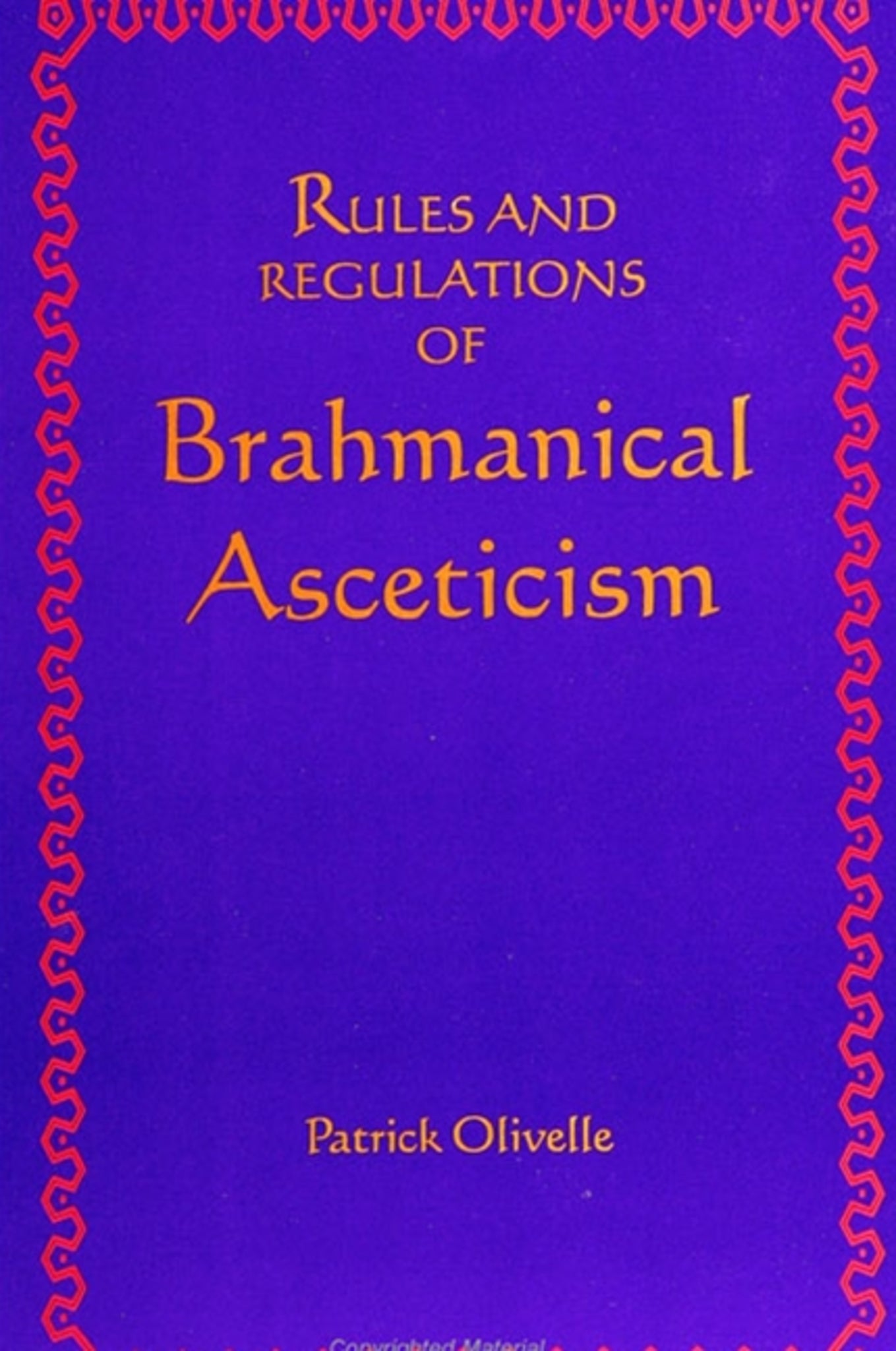We're sorry. An error has occurred
Please cancel or retry.
Rules and Regulations of Brahmanical Asceticism

Some error occured while loading the Quick View. Please close the Quick View and try reloading the page.
Couldn't load pickup availability
- Format:
-
22 November 1994

This translation of a twelfth-century Sanskrit text is the most comprehensive presentation of Hindu ascetic practices available in English. It is also the clearest.
Rules and Regulations of Brahmanical Asceticism is the critical edition and translation of a twelfth-century Sanskrit text written by Yadava Prakasaa, whose life and activities are of historical interest because, according to tradition, he was the teacher of the great Vais'n'ava theologian Ramanuja.
This text is the oldest and most comprehensive example of medieval Sanskrit literature devoted to examining the duties of ascetics. Yadava Prakasaa is the only one who explicitly examines the thorny question of whether asceticism is a legitimate way of life for Brahmins. His topics include the people qualified to become ascetics; the rite for becoming an ascetic; the clothes and belongings of an ascetic; techniques of meditation; daily routines such as bathing, divine worship, and begging; proper conduct and etiquette; the manner of wandering; residence during the rains; expiatory penances; and the funeral.
In his introduction, Patrick Olivelle examines the place of Yadava's text within the literary and institutional history of Brahman'ical asceticism. He discusses the origins of asceticism in India; its incorporation into the Brahman'ical mainstream; and its variations within Hindu sects, as well as in Buddhist and Jain traditions.


"Many exotic and strange things pass for Eastern religions today. Books like this help call attention to the traditional and authentic aspects of the religions of the East. This work is very authentic, and it evidences and embodies first-rate scholarship in the historical-critical, literary, and philosophical senses. It will be an excellent addition to modern scholarly literature in the field." — John G. Arapura, Professor Emeritus, McMaster University
Preface
Introduction
The Author: His Life and Works
Yatidharmasamuccaya and the Ascetic Literary Tradition
Structure and Contents
The Domestication of Asceticism
The Character of Ancient Indian Asceticism
The Asrama System as a Structure for Inclusion
The Domestication of Asceticism in Yadava
Translation
1
The Rule Sanctioning Itinerant Asceticism
2
Age of Eligibility of a Candidate for Itinerant Asceticism
Renunciation after Marriage
Renunciation Permitted at Any Time
Renunciation before Marriage Only for the Handicapped
Renunciation before Marriage for Detached People
Renunciation When Death Is Imminent
3
Examination of the Insignia
Bodily Insignia
External Insignia
Description of the External Insignia
4
The Procedure of Renunciation
Renunciation When Death Is Imminent
5
Principal Activities
Renouncers Who Abandon Vedic Rites
Mendicant Renouncers
Samkhya
Yoga
6
Daily Practices
Morning Duties
Midday Duties
Begging
Procedure of Eating
Rites Following the Meal
Evening Duties
Behavior toward Ascetics
7
Proper Conduct
8
Rules on Insignia and Related Penances
9
Wandering and Rain Residence
Rain Residence
10
Penances
11
The Procedure of an Ascetic's Funeral
Text
Introduction to the Critical Edition
Description of the Manuscripts
Genealogical Relation of the Manuscripts
Constitution of the Text
1
parivrajyavidhih
2
parivrajyadhikaridasanirupanam
3
lingnirupanam
4
samnyasaprayogah
5
mukhyakarmavidhih
6
ahoratrakriya
7
acarah
8
lingadharmaprayascittavidhih
9
gatisthitinirupanam
10
prayascittavidhih
11
yatisamskaravidhih
Appendix 1: Long Variant Readings
Appendix 2: Index of Authors Cited
Appendix 3: Index of Citations
Abbreviations and Bibliography
Index



